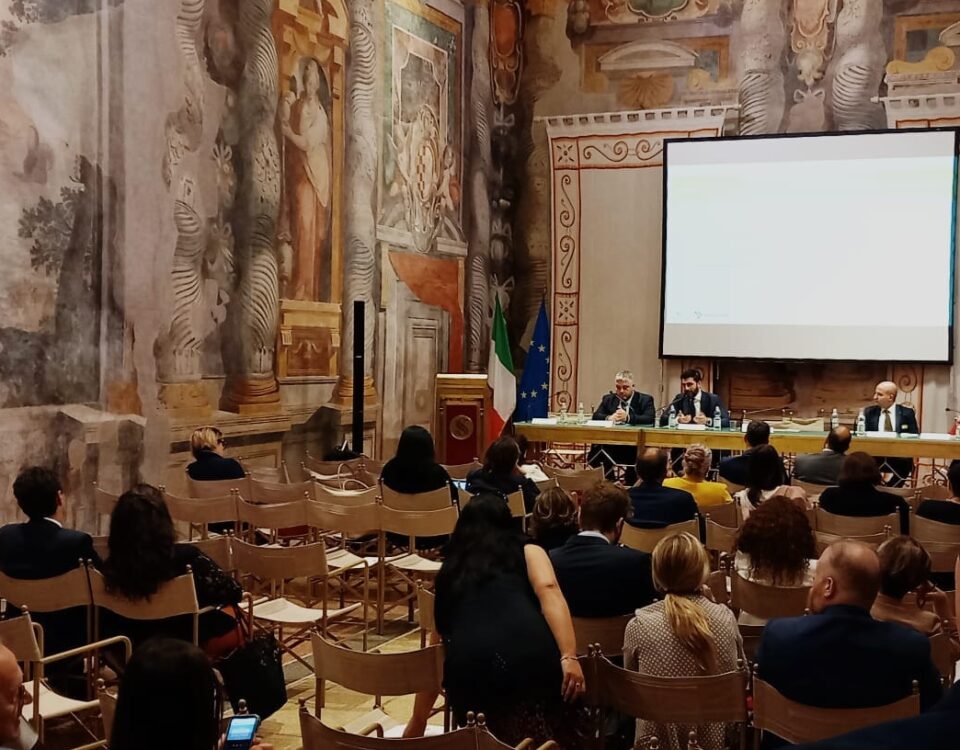California Department of Health Launches Newborn Screening Information System
26 Luglio 2005Community unites to aid child: Kaidence Oliver battles Andersen disease, needs liver transplant
5 Agosto 2005Genzyme Submits BLA for Myozyme(R) for Treatment of Pompe Disease
“CAMBRIDGE, Mass., July 29 /PRNewswire-FirstCall/ — Genzyme Corp. announced today that it has submitted a biologics license application (BLA) to the U.S. Food and Drug Administration for Myozyme(R) (alglucosidase alfa). If approved, Myozyme would be the first treatment developed for patients with Pompe disease, a debilitating and often fatal muscle disorder resulting from an inherited enzyme deficiency. The Myozyme BLA is expected to receive Priority Review by the FDA, which means the agency would be required to act on the application within six months.
The BLA contains data from several clinical trials, including the pivotal study AGLU01602, which Genzyme reported today met its primary endpoint. This trial enrolled 18 patients with infantile-onset Pompe disease who began receiving Myozyme by six months of age. Outcomes for these patients were compared with a historical cohort, rather than a placebo cohort, because of the rapidly progressive and fatal nature of infantile-onset Pompe disease.
All patients treated with Myozyme were alive at 18 months of age, compared with two percent of patients who were alive at this age in the historical cohort. The primary endpoint for the study was the proportion of patients treated with Myozyme who were both alive and free of invasive ventilator support at 18 months of age, compared with the proportion of patients in the historical cohort who were alive at 18 months of age. Eighty-three percent of patients treated with Myozyme (15 of 18) were both alive and free of invasive ventilator support at this age, compared with two percent of patients in the control group who were alive.
“This is a very exciting and hopeful moment for Pompe patients and their families,” said Henri A. Termeer, chairman and chief executive officer of Genzyme. “Myozyme could be available in the United States and Europe by the early part of next year and in other parts of the world relatively soon afterward.”
Genzyme will submit results from study AGLU01602 to the European Medicines Agency, which is reviewing a marketing authorization application for Myozyme filed in December 2004. The company anticipates submitting a marketing application for Myozyme in Japan later this year.
Genzyme is seeking approval for Myozyme’s use as a long-term enzyme replacement therapy for all patients with a confirmed diagnosis of Pompe disease, defined as a deficiency of the enzyme acid alpha-glucosidase. There is currently no approved treatment for the disease. Myozyme has received orphan drug designation in the United States, which would convey a seven-year period of market exclusivity if the product is approved. Orphan drug designations have also been granted in the European Union and Japan.
More than 130 patients are now receiving Myozyme in clinical studies, through Genzyme’s expanded access program, or through pre-approval mechanisms sponsored by governments in several European countries. Genzyme expects to initiate a clinical trial shortly for patients with late-onset Pompe disease. The company recently concluded an observational study involving late-onset patients, which was designed to evaluate appropriate endpoints for a treatment study. The Myozyme program is Genzyme’s largest research and development initiative.
About Pompe disease
Pompe disease is an inherited, progressive muscle disease that affects fewer than 10,000 people worldwide. The disease is caused by a deficiency of an enzyme known as acid alpha-glucosidase. This deficiency leads to the excessive accumulation of glycogen in the body, particularly in the muscles. Pompe disease manifests as a broad spectrum of clinical symptoms with varying rates of disease progression. Infantile-onset patients present in the first months of life with an enlarged heart and skeletal and respiratory muscle weakness, and most die from cardiac or respiratory complications by one year of age. Late-onset patients may present with muscle or respiratory weakness anytime during childhood or adulthood, and disease progression is less rapid. Late-onset patients often require mechanical ventilation for breathing assistance and mobility aids such as canes, walkers or wheelchairs. Late- onset patients will experience a shortened lifespan due to progressive respiratory failure. Pompe disease belongs to a family of more than 40 rare inherited diseases known as lysosomal storage disorders.
About Genzyme
One of the world’s leading biotechnology companies, Genzyme is dedicated to making a major positive impact on the lives of people with serious diseases. Founded in 1981, Genzyme has grown from a small start-up to a diversified enterprise with 2005 revenues expected to exceed $2.6 billion and more than 7,600 employees in locations spanning the globe. With many established products and services helping patients in more than 80 countries, Genzyme is a leader in the effort to develop and apply the most advanced technologies in the life sciences. The company’s products and services are focused on rare inherited disorders, kidney disease, orthopaedics, cancer, transplant and immune diseases, and diagnostic testing. Genzyme’s commitment to innovation continues today with a substantial development program focused on these fields as well as heart disease and other areas of unmet medical need.
This press release contains forward-looking statements, including statements about clinical trial results, regulatory plans and expected timelines for Myozyme, including the submission of the AGLU-01602 trial study report to US and EU regulatory authorities, the submission of a marketing application in Japan and the timing thereof, the anticipated timing of commercial availability of Myozyme, and plans to initiate a clinical trial for late-onset Pompe patients and the timing thereof. These statements are subject to risks and uncertainties that could cause actual results to differ materially from those projected in these forward-looking statements. These risks and uncertainties include the actual timing and content of submissions to and decisions made by the EU, US and Japanese regulatory authorities regarding the marketing authorization applications for Myozyme, Genzyme’s ability to obtain labeling approval of Myozyme for treatment of all Pompe patients on infantile-onset clinical trial data, the timely receipt of pricing and reimbursement approvals in approved countries, the ability to manufacture sufficient quantities of product for development and commercialization activities and to do so in a timely and cost efficient manner, and the risks and uncertainties described in reports filed by Genzyme with the Securities and Exchange Commission. Please see the disclosure under the heading “Factors Affecting Future Operating Results” in the Management’s Discussion and Analysis of Financial Condition and Results of Operations section of Genzyme’s Quarterly Report on Form 10-Q for the period ended March 31, 2005 for a more complete discussion of these and other risks. Genzyme cautions investors not to place substantial reliance on the forward-looking statements contained in this press release. These statements speak only as of the date of this press release, and Genzyme undertakes no obligation to update or revise the statements.
Media Contact: Investor Contact: Bo Piela Sally Curley 617-768-6579 617-768-6140
Genzyme Corp.
CONTACT: Bo Piela, +1-617-768-6579, or Sally Curley, +1-617-768-6140,both of Genzyme Corp.
Web site: http://www.genzyme.com/
Company News On-Call: http://www.prnewswire.com/comp/113803.html
“




